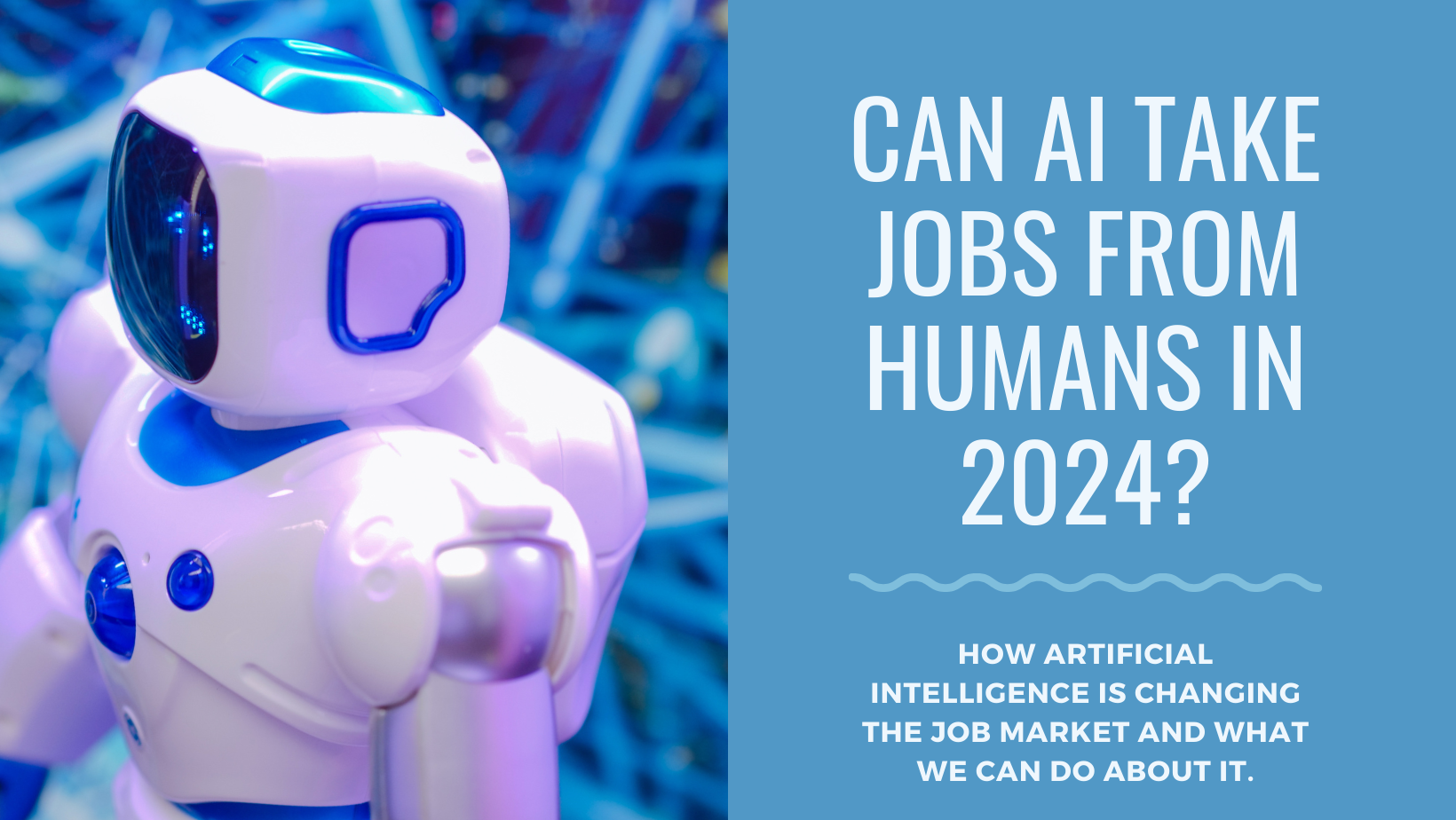Can AI Take: Human Skills vs AI, has been a topic of both fascination and concern when it comes to its impact on the job market. As we navigate the advancements of technology in 2024, the question of whether AI will take over jobs from humans looms large.
Outline of the Article
1. Introduction
. Defining AI takeover in the job market
. Brief history of AI impact on employment
2. Current State of AI in 2024
. Advancements and capabilities of AI technologies
. Industries impacted by AI
3. Impact on Employment
. Jobs already affected by AI
. Potential sectors vulnerable to AI takeover
4. Human Versus AI
. Strengths and weaknesses of humans and AI
. Collaboration potential between humans and AI
5. Challenges and Concerns
. Ethical dilemmas surrounding AI replacing jobs
. Addressing fears and uncertainties
6. Future Outlook
. Predictions on the job landscape with AI dominance
. Opportunities for upskilling and adaptation
Can AI Take: Redefining Employment Dynamics
The definition of AI takeover within the job market encompasses the replacement of human roles with automated processes driven by artificial intelligence. This shift isn’t entirely new; AI has been gradually integrating into various industries, altering traditional job landscapes.
Unveiling Unprecedented Capabilities
AI technology has made significant strides, showcasing capabilities once deemed futuristic. From machine learning algorithms to natural language processing, AI now operates across sectors such as healthcare, finance, manufacturing, and customer service. These advancements have streamlined processes and improved efficiency.
Restructuring Job Dynamics
The influence of AI on employment is undeniable. Routine tasks and manual jobs have seen significant automation, leading to displacement for some workers. Sectors like transportation, data entry, and repetitive manufacturing have already witnessed significant changes.
Human Versus AI: Synergy Amid Disparity
Humans possess unique qualities like creativity, emotional intelligence, and complex problem-solving, areas where AI still lacks finesse. The potential lies in synergistic collaboration between humans and AI, where each complements the strengths of the other.
The Dilemma of Integration
However, the integration of AI into the workforce raises ethical concerns and fears of job displacement. The ethical considerations of mass job displacement and its impact on society are substantial, requiring careful consideration and proactive measures.
Adapting to a Transformed Landscape
Predictions for the job market suggest a transformation rather than a complete replacement. New job opportunities and roles focusing on AI oversight, maintenance, and collaboration are likely to emerge. The need for upskilling and adaptability becomes paramount.
Embracing Evolution with Adaptability
AI’s evolution in 2024 presents a complex job landscape-transforming without necessarily indicating a complete AI takeover. Instead, it underscores the urgency for humans to champion adaptability, engage in continuous learning, and skill enhancement to harmonize with AI’s evolution.
The rapid advancement of AI technology in 2024 has significantly impacted various industries. From machine learning algorithms to natural language processing, AI has revolutionized processes, leading to increased efficiency and productivity. However, these advancements have also sparked concerns about the future of employment, with questions arising about AI’s potential to replace human workers across multiple sectors.
AI’s integration into the job market has undoubtedly altered the employment landscape. Routine tasks and manual jobs have been automated, leading to job displacement in sectors like transportation, data entry, and manufacturing. This displacement has raised concerns about the future employability of individuals in an increasingly AI-driven world.
However, the comparison between human capabilities and AI reveals a significant disparity. Humans possess unique qualities such as emotional intelligence, creativity, and complex problem-solving skills that AI currently lacks. The potential lies in leveraging these human strengths in tandem with AI’s computational power to create a more effective and efficient workforce.
Yet, the rapid integration of AI poses ethical dilemmas. The fear of mass job displacement and the societal impact of such transformations require careful consideration and proactive measures to mitigate adverse effects.
Looking ahead, the future of jobs in an AI-dominated world is not necessarily bleak. While certain job roles may become obsolete, new opportunities are likely to emerge. Jobs focusing on AI oversight, maintenance, and collaboration between humans and AI are expected to rise. This evolution emphasizes the need for individuals to adapt, continuously learn and acquire skills that complement AI technologies.
In conclusion, the rise of AI in 2024 does not imply a complete takeover of jobs by machines. Instead, it necessitates a paradigm shift in the way humans approach work-emphasizing adaptability, continuous learning, and a symbiotic relationship with AI technology.
FAQs
1. Will AI completely replace human jobs shortly?
While AI will impact certain job sectors, complete replacement seems unlikely. Adaptation and upskilling will be crucial.
2. Which industries are most vulnerable to AI takeover?
Industries relying heavily on repetitive tasks or data processing are more susceptible.
3. How can individuals prepare for the integration of AI in the workforce?
Continuous learning, upskilling, and focusing on skills that complement AI capabilities are advisable.
4. What role can humans play alongside AI in the job market?
Humans can focus on creativity, emotional intelligence, and complex problem-solving, areas where AI currently lacks finesse.
5. What steps can society take to address job displacement due to AI?
Implementing policies for reskilling, promoting education, and fostering a culture of lifelong learning can help mitigate job displacement.
Knowledge Base: AI and the 2026 Job Market
- Which industries will see the most AI growth in 2026? Healthcare, Urban Planning, and Digital Content Creation. Visit our AI cities blueprint for more.
- Can I prepare for an AI-driven economy? Yes. Focus on high-value human interaction and managing Small Language Models for niche tasks.
Author Bio: Written by Technoparadox Editorial Team. Our team of tech enthusiasts and researchers is dedicated to bringing you the most accurate and forward-looking insights into the world of 2026 technology.
Discover More in this Series: What are the challenges faced by EV technology in the USA?

